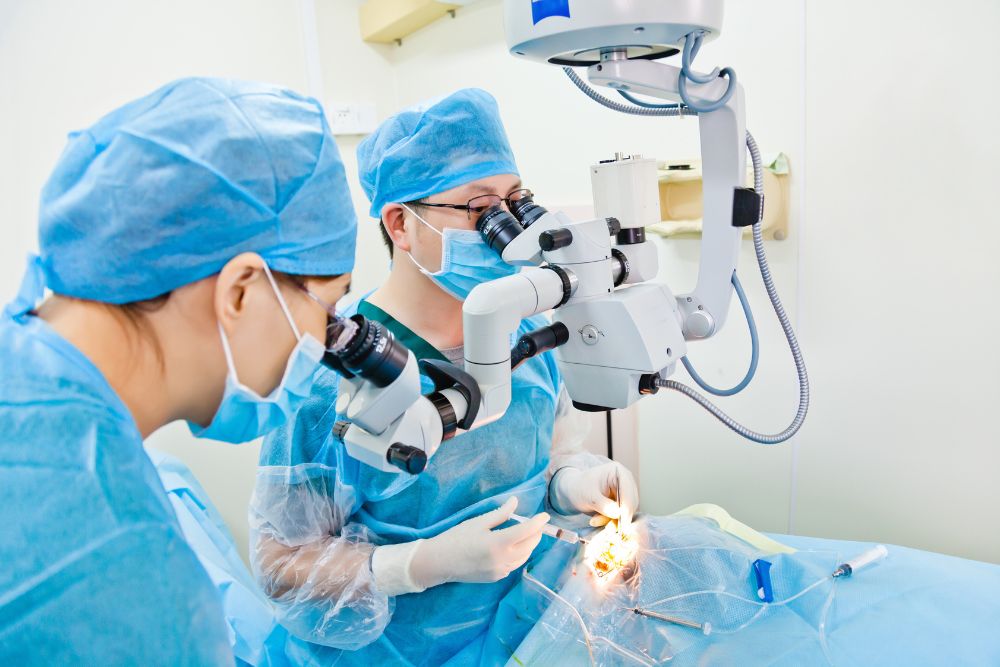What to Expect from Retina Surgery: A Patient’s Guide

If your retina specialist has recommended retina surgery, it’s natural to have questions and concerns. From understanding the types of procedures available to knowing what recovery looks like, this guide will walk you through what to expect so you can feel informed and confident moving forward.
Common Types of Retina Surgeries
Retina surgery is often needed to address conditions that affect the back of the eye, including retinal tears, detachments, diabetic retinopathy, macular holes, or epiretinal membranes. Some of the most common types of retina procedures include:
- Vitrectomy: A procedure where the vitreous gel inside the eye is removed to gain better access to the retina. It’s often used to treat retinal detachment, macular puckers, or bleeding due to diabetic retinopathy.
- Scleral Buckle: A flexible band placed around the eye to counteract the force pulling on the retina, often used to repair a detachment.
- Pneumatic Retinopexy: A gas bubble is injected into the eye to help reattach the retina, often paired with laser or cryotherapy.
-Laser Surgery: Used to seal retinal tears or holes, often as a preventative measure against detachment
Your retina specialist will determine the best course of treatment based on your specific diagnosis and eye health.
Pre-Surgical Considerations
Before undergoing retina surgery, you’ll have a detailed consultation with your surgeon. During this visit, you’ll discuss:
- The type of retinal surgery being recommended
- Risks and potential complications
- Anesthesia options
- Instructions for eating, drinking, and medication use the day before surgery
Your care team at The Retina Eye Center will ensure you’re fully prepared and have all your questions answered well before the procedure.
Retinal Surgery Recovery: What to Expect
Recovery timelines vary depending on the type of retina procedure performed and your body’s healing process. In general:
- Vitrectomy recovery may take several weeks. You might need to maintain a face-down position for a period of time if a gas bubble is used.
- Vision may be blurry initially and gradually improve.
- You’ll need to avoid heavy lifting and strenuous activities for a few weeks.
Following your surgeon’s instructions closely is key to successful retinal surgery recovery. Post-operative appointments will help your doctor monitor healing and manage any side effects, such as discomfort, dryness, or floaters.
Trusted Surgical Care at The Retina Eye Center
At The Retina Eye Center, we’re proud to offer some of the most advanced retina surgery options available. Our board-certified specialists bring decades of experience to every procedure and are committed to patient-centered care from diagnosis to post-operative follow-up. Whether you need a complex vitrectomy or a less invasive treatment, you’re in expert hands. Retina surgery can feel daunting, but with the right information and care team, it becomes a powerful step toward preserving or restoring your sight. If you’ve been told you may need surgery or want a second opinion, schedule a consultation with one of our experienced retina specialists today.
